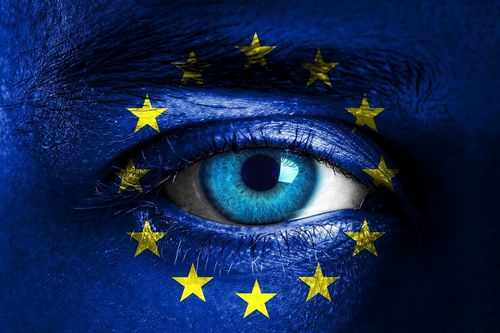After two world wars, Europe was ideologically built on a model of peaceful coexistence between previously competing nations. Today, as different possibilities loom across Europe regarding this initial project, researchers have questioned what European citizens think of it. How do they see Europe according to their socio-economic status and level of education?
To find out, a broad study was conducted with 21 discussion groups in four European cities within the Transatlantic Network on Political Europe. This research was led by Laurie Beaudonnet, professor in the Department of Political Science at the University of Montreal, scientific director of the Jean Monnet Center in Montreal and researcher at UdeM’s Center for International Studies and Research. The local directors for each country are Céline Bello, a research fellow at the Pacte Laboratory and an instructor at Sciences Po Grenoble in France; Virginie van Engelgom, Professor at the Louvain-Europe Institute of Political Science at the Catholic University of Louvain, Belgium; and Marina Costa Lobo, researcher at the Institute of Social Sciences at the University of Lisbon, for Portugal.
The general findings of this study can be found in an article written by Laurie Beaudonnet, Céline Belot and Hélène Caune, research fellow in the Pacte lab and teacher at Sciences Po Grenoble, Anne-Marie Houde, a doctoral student at the University of Warwick, and Damien Benneteau, a doctoral student at the Catholic University of Louvain. The section on values is the result of work in progress by Laurie Beaudonnet, Céline Belot and Hélène Caune.
Discuss European integration
Twenty-one focus groups were conducted in four cities over a period of four months: in Grenoble (France), Louvain-la-Neuve (Belgium), Lisbon (Portugal) and Florence (Italy).
The 95 participants were divided into homogeneous groups of retired seniors, students, and office workers.
The moderator will ask and then write a question, then suggest different clips with political messages or images and give the groups more than three hours of discussion to give them time to respond.
Various support for European integration according to economic and financial capital
The study shows that the feeling of inclusion in the European Union varies with economic and financial capital, regardless of age or country. “People who have more cultural and financial capital, who are on the move in their work, and who can do tourism tend to support inclusion, while people who are less economically stable will generally feel excluded from this dynamic,” says Laurie Beaudonnet.
a matter of values
This feeling of inclusion depends not only on the economic situation of the individual, but also on his personal values. Citizens already have a certain idea of the European project in terms of values. These can be the values of democracy or redistribution, participation and openness. This allows them to evaluate the project and consider whether the project meets their expectations.
The importance of peace for Europeans
“What surprised us a lot is to see how important Europe’s place in the world is for European citizens. They expect Europe to have democratic values and to have external action in line with these values,” the researcher adds.
The study shows that official discourse about peace has been incorporated by Europeans, regardless of their nationality, age, economic status and level of education. Everyone agrees that Europe has a responsibility to ensure peace abroad and to manage the migration issue in the best possible way. “The more on the left and the younger we are, the more vicious the criticism. The younger generations also express themselves differently when faced with the responsibility of the colonial past of some member states,” says Professor Beaudonnet.
Survey Surprise: Focus Groups Find Consensus
It was easier to send out a long questionnaire and analyze the responses than to study the responses of the 21 discussion groups, but the goal was instead to allow people to express themselves freely in a discussion in order to obtain separate opinions. Surprisingly, many consensus emerged, especially in groups of elderly people, who met three times.
Researchers are now analyzing how group dynamics can produce a sense of consensus, even when speech is designed to provoke debate with argumentative messages.
“By having the literal text of all the discussions, we can observe from a linguistic point of view what happened. There are salient moments in which we note that the participants do not have the same positions at all and are still able to agree. There is then the production of consensus from the verbal point of view, while in terms of the position Not at all, notes Laurie Beaudonnette.
Researchers will soon analyze what might lead to this consensus. Did the participants feel embarrassed? Isn’t it socially acceptable to openly express disagreement?

“Music guru. Incurable web practitioner. Thinker. Lifelong zombie junkie. Tv buff. Typical organizer. Evil beer scholar.”







More Stories
Bacteria brought into space mutated and became stronger on board the International Space Station, study finds
Sperm for science used in fertilization: already 16 contacts
Scientists have discovered new health risks associated with microplastics